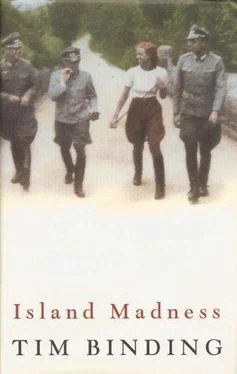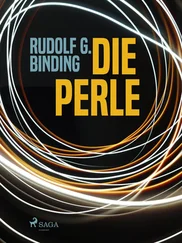“You are lucky to have your son to look after you,” he once told her. “All sons wish this. The son that cannot feels that he has betrayed the one person he loves most in the world.”
“Go on with you,” Ned’s mother had retorted. “It’s I who have to look after him,” and as the three of them had laughed Ned had looked at the Major and thanked him by his smile. Ned was amazed at his mother’s transformation, the sudden lightness of her movements round the table as she served the supper, the glow that came to her cheeks as these meals progressed. She had even started to wear the second of her better dresses. If only he could touch her in this way, bring that faraway smile to her face. His mother was not in love with Lentsch, she was in love with being a mother again.
“He’s a good boy,” she said once, waving to him as he closed the garden gate. Ned laughed.
“He’s not a boy, Mum.”
“Yes, he is,” she replied, turning round to ruffle his hair. “You’ve just got to look at the way he holds out his plate or hugs his knees in front of the fire. You’re the same.”
Usually when the meal was over she went upstairs to leave them together, so that they might slowly dismantle the wall that still remained between them. Then the Major would pack his bags and leave home, and travel into the other Germany which had raised him, the one which had sent him here. Ned had never heard a man talk like Lentsch before, about who he was and why he was, and though some of it made no sense to him at all, asides and compliments to a world of which he had but the haziest conception, in Lentsch’s hesitant voice he found the echo of uncertainty of his own.
“I wanted to do so many things with my life,” the Major said one night, nursing one of the beer bottles that Ned had brought up from the Britannia, “to study, to learn about living things, to create some knowledge. And now I do this.”
He looked at his watch. “You have a radio?”
Ned tried to keep his face expressionless.
“It is time for one of our broadcasts to England,” he continued. “You listen, I suppose?” Ned hesitated. “Go on, bring it out from its hiding place. I do not care.”
Ned leant into the fireplace. Small pieces of piaster feil as he pulled the wireless free.
“Plug it in, plug it in!”
“It takes a bit of time to warm up,” Ned said. “But it’s got a nice tone.”
The Major pushed Ned aside and starled to fiddle with the knobs, skipping babbling voices and snatches of blurred tunes until he found the station he wanted.
“Bremen,” he announced.
The man with the long drawl came on. Though it was accepted wisdom that no one could believe a word he said, there was a certain elegance in his contempt that had an unsettling ring of truth about it. Not the military claims, which were written for him by the German High Command, but more in the depiction of the Allied command, their venality, their disdain for the common man. It was something that struck an uneasy chord on this island. He was back on his old track tonight, pouring scorn on the bloated figure of Churchill, ‘the most sordid figure in British history’, who had shocked his subordinates by talking to Roosevelt in his dressing gown while the President lay in bed.
“It is a clever picture to paint,” Lentsch pointed out, “whether you believe it or not. He is suggesting a deep-seated depravity, a willingness of the British leader to debase himself before the corrupting power of America. An intellectual if not physical buggery.”
Ned said nothing. He had never liked Churchill much anyway. He wasn’t alone in that either. Then the music starled. It was pleasant bul didn’l warranl the eagerness with which Lentsch bent his head.
“Very catchy,” Ned said.
The Major shook his head vigorously, holding his hand up to indicate silence. Then the voice came, singing in soft English.
I’m—playing with fire
I’m—going to get burnt
I know it but what can I do
I know my heart must be content
To go where it is sent,
Although I’ll repent when I’m through
But what can I do
I’m—playing with fire
I’m—going to get burnt
But I’ll merry go round it with you
When I go for my ride
With my eyes open wide
I’m playing with fire
I know it but what can I do
“I prefer Anne Shelton myself,” Ned said.
Lentsch hushed him again. Then the voice returned, this time speaking rather than singing. There was a cautionary insistence previously absent, articulating every warning vowel with great care, less anyone should miss the message. England—is playing with fire She’s—going to get burnt She knows it, but what can she do, She says her people must be content That for Churchill’s sins they may repent When they’re through They’ll be plenty of praying to do
England—is playing with fire She’s—already been burnt And Egypt is troubling her too Sure she’s losing her pride With her eyes open wide England is playing with fire She knows it Does America too?
“Charlie’s Orchestra,” Lentsch told him. “Some of the best musicians in the country. But the message! Always Churchill. Always America. For them America is Russia’s cousin, the two great enemies of European civilization. The war is not simply about territory. It is about culture, with Germany alone defending Europe from the barbarism of the East and the decadence of the West. Hitler always said he would get no help from England. England likes money too much. That is why we followed him. We had faith. We had vision.”
“And we don’t?”
“You have resilience, courage and stubbornness. But not vision. Your vision was made a hundred years ago. Now you simply want to live off its fruits, to be left in peace. If we had won quickly, as we knew we could, if Churchill had been defeated, if he had been captured or exiled to Canada, if your old King had returned to the throne, accepted peace, do you think anyone would have minded very much? A few maybe. This was a reluctant war. You did not wish it.”
“You did.”
“Not with England. France there were some old scores to settle. The East, Communism, was our first enemy and later it would have been America. America wants to rule the world. It wants us to sing American songs and dance American dances. It wants us to watch American films and eat American food. We don’t want these things. We have our own food, our own language, our own songs!”
“So do we.”
“Not for much longer. The momentum of all these things, your language, your music, has passed into their hands. We are German and we wish to remain so. In a way we want to stand still. America does not. America believes in movement, in the mixing of cultures; art, music, even procreation: different bodies locked in an embrace, from which is produced—what? Bastard children. Wild, beautiful children maybe, but still bastards all. America is the only nation in the world which wishes this. The only one! It wants to churn and mix, to see what happens. That is why my government detests jazz. It is just such a mixture. And in the nightclubs of Berlin, no, not just Berlin, but Paris and Rome and London, jazz is taking over. That is why they try to ban it.”
“But you listen to it.”
“Of course! I love jazz! But it is partly true what they fear. There is an American writer, Ned, called Scott Fitzgerald. You have read him?” Ned shook his head. “No matter. He once said that jazz is sex first, and then music. And it is true. That is why the young love it. It is full of energy. It is like sex: addictive, exciting, experimental. When they cannot have sex they feast on jazz and after they have had their fill of jazz they are ready for more sex. American jazz and American sex, everything mixed up. Hitler does not want this. He does not want our youth to be seduced by foreign cultures, to breed on such undisciplined beds. He wants them to love things German. He believes in the immobility of culture. That is his misfortune, his great weakness, his misunderstanding of the modern age. He wants the roads and the cars and radio, but cannot bear the thing that comes with it, the mixing of other cultures. A nation of horses and carts, a nation with no telephones and no radios cannot mix. Their culture will stay the same. That is why our galleries are filled with paintings of old peasants and farmers’ families gathered round the fire. But a nation which has aeroplanes and telephones and gramophones can never stay still. Whether it is good or bad is another matter. But it is something that cannot be stopped. Look at this island, with its concrete walls and its fortifications, trying to keep out the rest of the world. How can it? The future will not only land on the beaches or drop down from the sky. It will float through the air. We will breathe it in through our lungs, it will infect our blood. Walls keep out nothing. Now put the wireless back, otherwise I will have to report you.”
Читать дальше












